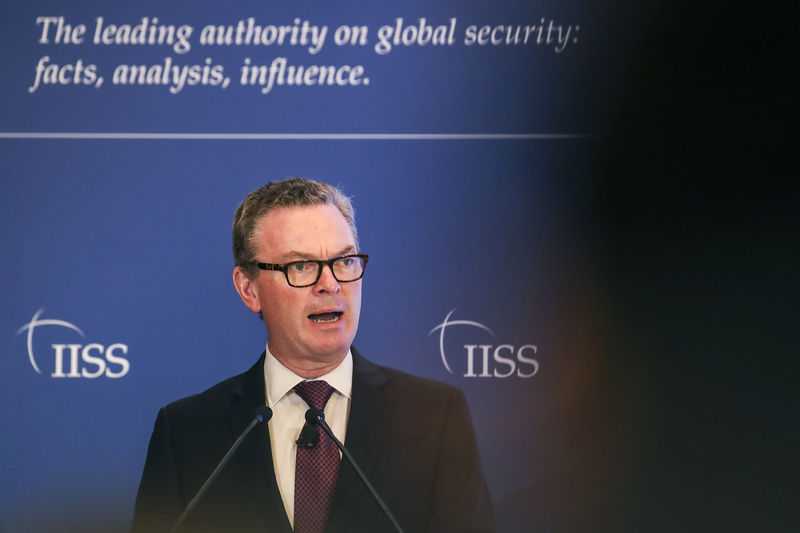Australia: China has raised ‘anxiety’ in disputed waters
30 January, 2019

Australian Defense Minister Christopher Pyne urged China on Monday to resolve tensions in the South China Sea in accordance with international law, in a swipe after Beijing’s sudden detention of a writer who holds dual citizenship.
Pyne said the artificial islands Beijing has been building in the disputed waters have “increased anxiety” and “not increased regional confidence in China’s strategic intentions.”
“On the other hand, resolving disputes in the South China Sea in accordance with international law would build confidence in China’s willingness to support and champion a strategic culture that respects the rights of all states,” he added.
Pyne was speaking at a forum in Singapore attended by defense representatives from 24 countries. He said Australia is open to taking part in multilateral activities in the “international waters” which are crucial for global commerce and rich in fish and potential oil and gas reserves.
China is pitted against smaller neighbors in those waters, which it claims almost in entirety. While Australia is “not interested in containing China,” it wants Indo-Pacific countries to not have to make “choices between economic gain and sovereignty,” Pyne said.
He added that the growing rivalry between the U.S. and China should not be defined in “wholly adversarial terms” or characterized as a new Cold War because economies are far more mutually dependent than they were when the West contested the Soviet bloc.
“There is no gain in stifling China’s growth and prosperity, and this is not an agenda in any capital that I know of,” Pyne said.
Instead, Australia hopes to increase its engagement with the Indo-Pacific, which is home to the world’s busiest sea lanes and 50 percent of its population.
It plans to invest more than 90 billion Australian dollars ($64.8 billion) in a fleet of attack class submarines, frigates and other ships to strengthen its maritime capabilities. Pyne said the country hopes to increase its defense budget to over 2 percent of its gross domestic product by 2021.
“Australia sees its role as one of being able to talk to both China and the United States openly and frankly,” he said. “We are clearly a very close ally of the United States ... but we don’t believe we need to choose between security and prosperity, and we haven’t in the past and we don’t intend to in the future.”
Pyne visited Beijing last week for a meeting with his Chinese counterpart, Wei Fenghe. They discussed the detention of Chinese-Australian writer Yang Hengjun, whom China has accused of endangering its national security.
On Tuesday, Pyne said consular access to Yang, a 53-year-old novelist and online commentator, “has been granted.” He did not give further details but said Australia’s relations with China were in “positive shape.”
